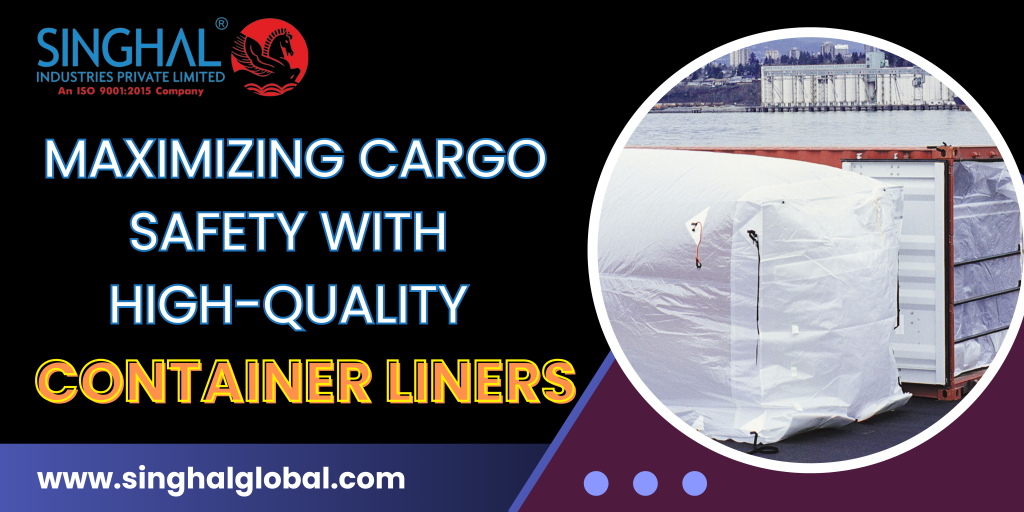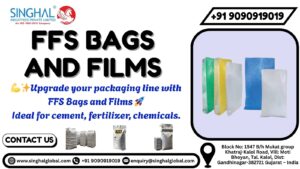The international supply chain networks are the fundamental of the moder business world today, where transportation is a key factor. However, managing the safety and the integrity of the cargo when in transit can sometimes be a very difficult task particularly where bulk materials are involved. Premium container liners address these challenges by providing protection in the form of a durable outer layer that will prevent contamination, moisture and damage to the contents.
This guide explores the importance of container liners and its function in protecting the cargo as well as different kinds of liner it and includes a comprehensive question and answer on frequently asked questions.
The Essential Role of this Liners
This has made Flexible container liners almost a requirement for operations in industries that deal with transport of large volumes of material. Intended to be installed inside standard shipping containers, these liners serve as a protective barrier, which reduces impact from the outside world. Due to this versatility, they can handle all forms of cargo, such as; food grains, powders, chemistries and even plastic granules.
Key Benefits of Flexible Container Liners
- Protection Against Contamination: Ordinary liners create a barrier within the conveyance to protect the cargo from either having a direct contact with dust, dirt or moisture. Such level of hygiene is important for industries like food processing and pharmaceutical industries.
- Cost-Effective Solution: It is also important to understand that omitting the have secondary packaging is possible with the help of flexible container liners, so the transportation costs will be optimized in general.
- Ease of Use: These liners are quite easy to fix and this has led to a reduction in the time taken to load and unload.
- Customizable Options: The flexible liners are also suited…read the cargo specification and can have an antistatic quality or UV protection as necessary.
Enhancing Cargo Safety for Bulk Materials
Bulk items often pose leakage, contamination or spilling challenges whenever they are in transit. The problems are solved by Container liners for bulk materials because they provide proper protection of the cargo in the course of transportation.
Industries that commonly use these liners include:
- Agriculture: For conveying grains, seeds, and all agricultural products that may be required on large scale.
- Chemical Industry: As powder handling system; resins; and chemicals that require certain level of hygiene when in use.
- Food Industry: It is specifically used for the transportation of easily spoiling food products such as sugar, flour, or starch.
Advantages of Using Bulk Material Liners
- Prevention of Leakage: These liners are specifically constructed to take the distribution weight putting a lot of focus on protecting the products.
- Improved Hygiene: In industries that deal with delicate goods, the employment of the container liners means that the goods remain pure.
- Eco-Friendly Options: It is worth mentioning that numerous liners are formed with materials that are reusable, thus benefiting the businesses from an environmental perspective.
- Reduced Cleaning Costs: Thus, the container’s interior whereby the cargo never comes into contact with it only requires a little scrubbing once the goods have been unloaded.
Bulk Container Liners: Transforming Logistics
Bulk container liners have acted as a new technology in the transport of large volumes of products. They are in particular formulated for dealing with issues associated with bulk transport including the issues of quantity, contamination and safety.
These liners are manufactured using polyethylene or polypropylene that guarantees them the ability to stand the rigors of bulk cargo. They are in addition designed with features, including venting for aeration or anti-static for handling of materials for instance powders.
Benefits of Bulk Container Liners
- Enhanced Cargo Protection: These liners protect their content from conditions that can be fatal outside the packer such as weather changes, dust and insects.
- Cost Efficiency: Liners therefore help businesses to reduce on losses by having to restock products regularly, lessen on wastage and utilize less packaging material.
- Compliance with Safety Standards: Liners also have to have high-quality products which will pass all the necessary requirements in order to transport goods safely and legally.
- Versatility: Due to the fact that bulk liners are designed to accommodate different kinds of product, ranging from dry products to semi liquid products, it makes bulk liners to be suitable for many industries.
Choosing the Right Container Liner
Choosing the right liner for the container is very vital in order to enhance the security of the cargo:
- Type of Cargo: The first criterion is to determine whether the liner is for solids, liquids or powdered products.
- Environmental Factors: Most of the time, the cargo shipper should contemplate the environmental conditions that the cargo will be subjected to such as humidity, temperature, or direct sunlight.
- Custom Features: Depending on your needs for the fabric, you should check the details such as UV protection, non-stain or anti-static feature, or the opportunity for the fabric to be vented.
- Material Strength: Make sure the liner material bear the load and category of freight to be hauled.
Installation of Container Liners
Container liners are very useful, however their effectiveness relies heavily on its proper installation:
- Prepare the Container: The initial step is to wash the inside of the container because of any even though residues or dirt.
- Unfold the Liner: Pour the liner out evenly over the base of the container.
- Secure the Liner: You can just fix the liner in its place by using the straps, clips, or adhesive tapes available.
- Load the Cargo: Take great care to fill the container correctly so that none of the sides of the liner are ripped or torn in any way.
- Seal the Liner: After loading the cargo then cover the liner so that the goods are protected from external conditions.
Another aspect that is also important to reducing risks to shippers’ cargo is through close inspection and early replacement of deteriorated liners.
Conclusion
Modern transportation cannot do without high-quality container liners – these products provide the highest level of protection for the cargo. With the flexible container liners applicable to a wide range of fields, container liners when handling bulk materials, or Bulk container liners in large-scale operations all guarantee the safety of your goods in transit.
Improving on the choice of container liners available in the market means that businesses will not only be offering the best to their cargo but will also be doing it in the best way that improves operation and decrease on the cost and finally ensuring customer satisfaction. In the global trade operation, container liners will always remain as an indispensable element for global trade connectivity.
Frequently Asked Questions (FAQs)
Q1. Are container liners reusable?
Yes, the containers liners are reusable by and large where the liners are made of sturdy material, particularly, woven polypropylene. However, their reusability varies depending on the kind of cargo the transport liner was used in transferring and its state afterwards. For instance, liners utilized for non- hazardous material apply to can be washed and reclaimed while those that are used in hazardous and highly contaminable materials are disposable.
Q2. What materials are container liners made from?
Container liners are commonly made from materials such as:
- Polyethylene (PE): It is also considered flexible and is also known to not be affected by moisture.
- Polypropylene (PP): It provides very good strength and endures very well.
They enable the liners to endure operational uses and shocks during transportation such as vibrations, pressure or physical abuse; all of which exert pressure on the vehicle liners.
Q3. Can container liners handle liquids?
Indeed, there are specialised container liners that are specific to liquid contents such as oils, syrups as well as chemicals and these are referred to as liquid bulk liners. These liners have additional safeguards for barriers as well as having high secure seal to avoid leakage. It also contains ports for high throughput rates for both fill and emptying processes.
Q4. How are container liners installed?
Container liner application consists of rolling the liner across the interior of the container, pulling straps through specifically designed clips and making sure that the liner drapes over all sides of the container. Proper installation helps reduce the chance of getting damaged and helps keep the cargo secure all through the trip.









